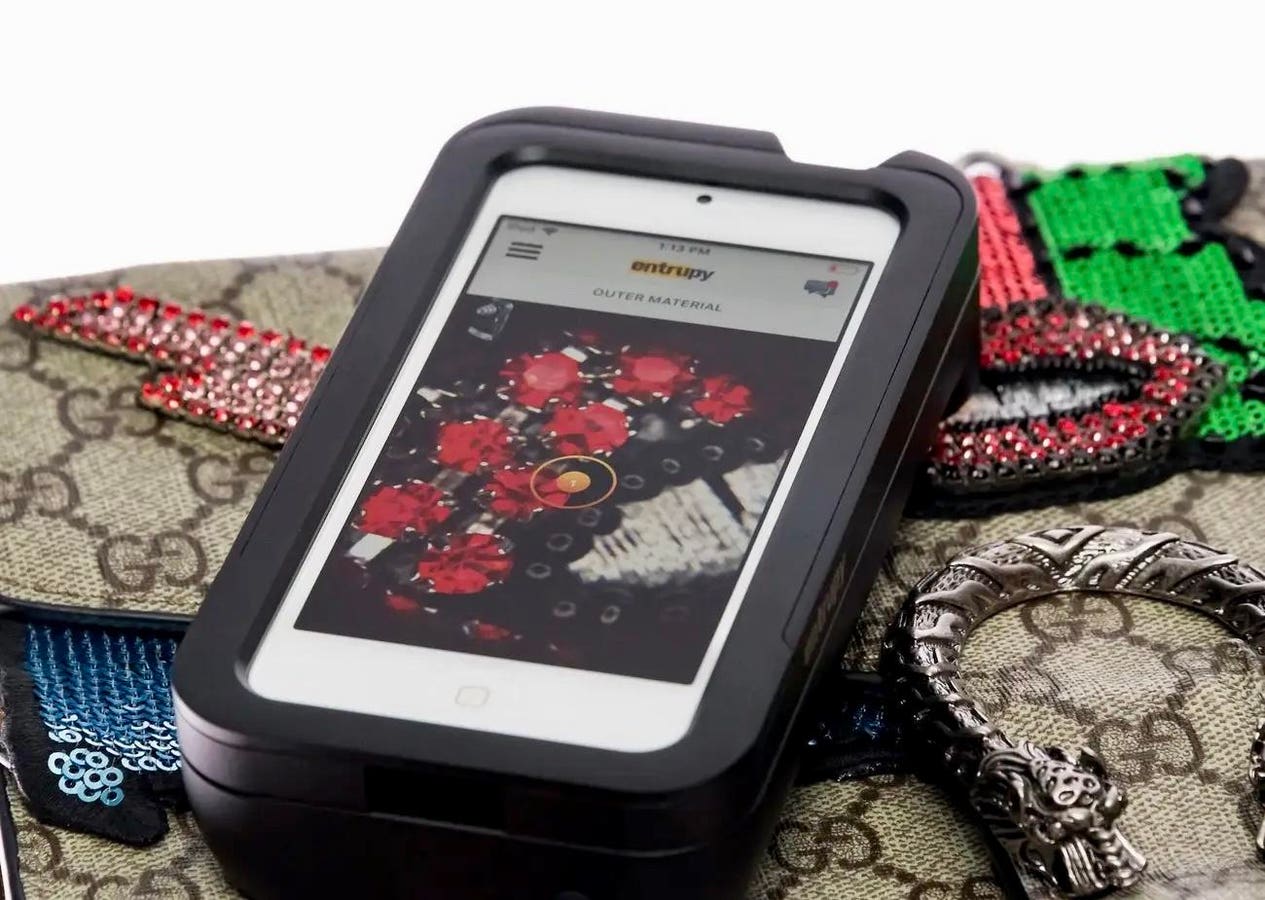Earlier this month artificial intellience (AI) powered authenticator Entrupy was announced as an authentication provider of pre-owned luxury handbags for the TikTok Shop in the US.
It uses a combination of AI and microscopy to assess the authenticity of an item. When the item is scanned using the outfit’s proprietary device and app, a set of microscopic images are collected, whereupon machine learning algorithms compare them against a database containing millions of records from known authentic and counterfeit products.
Based on the results of this comparison, the AI will either verify the item’s authenticity or return an “unverified” result. Each scan from an Entrupy device becomes part of this database, further training the algorithms and making the solution smarter and more accurate.
For most items, the process of scanning and submitting for authentication using the Entrupy app takes between three and five minutes. In some instances, it can take up to an hour, and Hermès Premium items can take up to 24 hours.
AI is only ever as good as the information fed to its algorithm so the company works with data scientists, engineers and research experts who feed information to the technology in real time to support the process. The company launched in 2012 and has been collecting data to inform its algorithms ever since. According to Entrupy, its authentication has an 99.1% accuracy rate.
TikTok seller Kimmiebbags, welcomes the integration. “Now anyone shopping through my page will trust that their purchases are authentic,” she said in a statement.
“We want to make sure that when buying luxury items, it is a smooth experience,” added Entrupy founder and CEO Vidyuth Srinivasan. “This integration allows us to continue our mission of protecting both businesses and consumers from purchasing counterfeit items.”
For the record the total amount of counterfeit goods sold worldwide each year comes in at around $1.7 trillion to $4.5 trillion so the business of authentication is likewise a lucrative one.
Swiss foundation, Origyn was an early mover for authenticating luxury watches, partnering last year withWatchBox, a leading platform for the certified pre-owned market for luxury timepieces. Origyn uses a combination of human experts alongside a proprietary device which likewise features AI plus ultra high resolution cameras which photograph the watch at 360 degrees. It also mints a digital certificate containing the watch’s biometric fingerprint which is secured via blockchain.
However, while applying authentication tech to the secondary market—valued at some $120 billion—is perhaps the quickest way of rolling it out, luxury brands themselves are playing the long game and integrating anti-counterfeiting measures at source.
Aura Consortium (founding members being LVMH, Prada Group, OTB, Mercedes-Benz and Richement Group brand Cartier), is concerned with pre-verifying items, putting garments, accessories and jewelry on chain when they are created. It issues them with unique digital IDs to prove that they are indeed the real thing.
These IDs also include additional benefits such as informations about their provenance and manufacture process for transparency and traceability purposes. Immutably encoded via blockchain, they are linked to the physical item in question by an attached near field communication chip (NFC) in the case of Margiela accessories like the brand’s Tabi shoes or quick response (QR) codes in the case of knitwear by Loro Piana.
Said certificates can be transferred when the goods change hands, offering assurances for purchasers in the secondary market too.
Read the full article here





